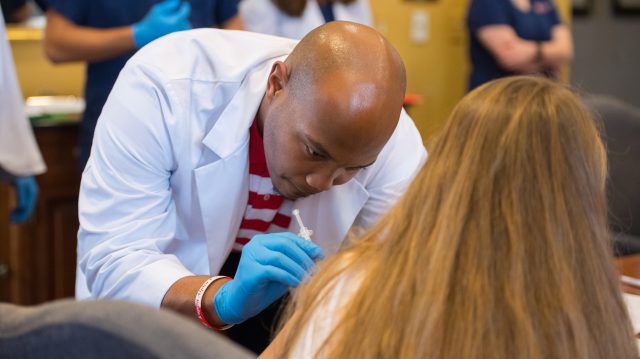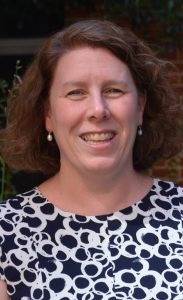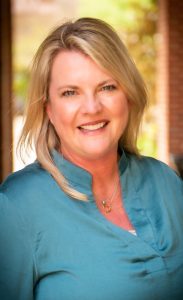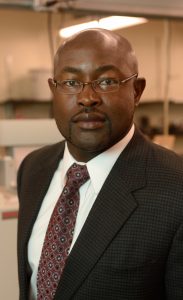
A UM student pharmacist gives a flu shot as part of the School of Pharmacy’s annual Operation Immunization drive on campus. UM faculty plan to use a new grant from the National Institutes of Health’s Science Education Partnership Award program to expose Mississippi high school and university students to the possibilities of careers in the health sciences. Photo by Kevin Bain/Ole Miss Digital Imaging Services
OXFORD, Miss. – A team of University of Mississippi faculty members has received a prestigious $1.3 million grant from the National Institutes of Health’s Science Education Partnership Award program.
This is the first SEPA grant awarded to the university. It brings together faculty from across the university to participate in Project SCORE, which stands for Student Centered Outcomes Research Experience.
The goal of Project SCORE is to excite Mississippi’s high school and university students about the health sciences. Students will participate in a yearlong weekly afterschool program aimed at increasing their interest in science, technology, engineering, mathematics and health science careers.
Participants in the project will be guided by Ole Miss faculty but will take a leading role in developing research projects that focus on health issues that directly affect them. This approach, known as youth participatory action research, or YPAR, has previously shown success in engaging the attention of young people, said Marie Barnard, associate professor of pharmacy administration in the School of Pharmacy, who leads the project as principal investigator.
“We’re utilizing a YPAR approach to both bring the perspective of young adults to guide health research, but also to have them lead research projects,” Barnard said. “In this way the participants get to partner with experts to learn how to conduct research projects that can answer the questions that matter to them and hopefully inspire them to be interested in careers in the health sciences.”
Joining Barnard as co-investigators are Allison Ford-Wade, professor of health, exercise science and recreation management in the School of Applied Sciences, and Murrell Godfrey, assistant dean of diversity, equity and inclusion in the Graduate School.
Caroline Compretta, Erin Dehon and Rob Rockhold from the UM Medical Center also serve as co-investigators, and faculty from both the Oxford and Medical Center campuses will participate.
Two community organizations, the Boys & Girls Club in Oxford and Stewpot Community Services in Jackson, are integral partners. Each organization will host a workshop, which Barnard said will be beneficial.
“Being able to offer a program in a community space in which students are already comfortable is important,” Barnard said. “We are connecting university researchers with the community in a community space because this project is focused on collaboratively learning with the community.”
Getting more Mississippi youth involved in STEM and health sciences will be a boon to the state’s health in the long run, Ford-Wade said.
“It’s no secret that we live in one of the unhealthiest states in the country,” she said. “If these students end up going into one of the STEM fields, it can help not only our colleges and universities, but also our local communities down the road.”
Josh Gladden, UM vice chancellor for research and sponsored programs, praised the group of faculty for bringing the first SEPA grant to the university.
“Project SCORE is a wonderful example of both community engagement and interdisciplinary research at UM that will provide concrete benefit to society,” Gladden said. “We congratulate Dr. Barnard and the entire team on this award and are looking forward to the impact it will create for Mississippians.”
This project is supported by the National Institute of General Medical Sciences of the National Institutes of Health under Award Number R25GM142065. The content is solely the responsibility of the authors and does not necessarily represent the official views of the National Institutes of Health.


